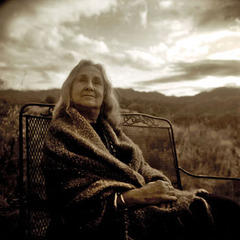Samuel Johnson Quotes about Country

Samuel Johnson, Hester Lynch Piozzi, James Boswell (1828). “The Beauties of Samuel Johnson, LL. D.: Consisting of Maxims and Observations, Moral, Critical, and Miscellaneous: to which are Now Added Biographical Anecdotes of the Doctor, Selected from the Works of Mrs. Piozzi;--his Life, Recently Published by Mr. Boswell, and Other Authentic Testimonies; Also His Will, and the Sermon He Wrote for the Late Doctor Dodd”, p.278
He that wishes to see his country robbed of its rights cannot be a patriot.
Samuel Johnson, Arthur Murphy, Francis Pearson Walesby (1825). “Reviews, political tracts, and Lives of eminent persons”, p.221
Samuel Johnson (1804). “The beauties of Samuel Johnson: maxims and observations. To which are now added, biographical anecdotes of the doctor, his life [&c.].”, p.286
What I gained by being in France was learning to be better satisfied with my own country.
James Boswell, Samuel Johnson, Edmond Malone (1824). “The life of Samuel Johnson, LL. D., comprehending an account of his studies, and numerous works, in chronological order: a series of his epistolary correspondence and conversations with many eminent persons; and various original pieces of his composition, never before published; the whole exhibiting a view of literature and literary men in Great Britain, for near half a century during which he flourished”, p.338
Samuel Johnson (1825). “The Works of Samuel Johnson, LL.D.”, p.23
James Boswell, Samuel Johnson, Edmond Malone (1824). “The life of Samuel Johnson, LL. D., comprehending an account of his studies, and numerous works, in chronological order: a series of his epistolary correspondence and conversations with many eminent persons; and various original pieces of his composition, never before published; the whole exhibiting a view of literature and literary men in Great Britain, for near half a century during which he flourished”, p.195
Samuel Johnson, Arthur Murphy (1840). “The Works of Samuel Johnson, LL. D.: Lives of the poets”, p.426
A blade of grass is always a blade of grass, whether in one country or another.
Samuel Johnson, Hester Lynch Piozzi, James Boswell (1787). “The Beauties of Samuel Johnson, LL.D.: Consisting of Maxims and Observations, Moral, Critical, and Miscellaneous, to which are Now Added, Biographical Anecdotes of the Doctor, Selected from the Late Productions of Mrs. Piozzi, Mr. Boswell, ...”, p.22
In James Boswell 'The Life of Samuel Johnson' (1791) vol. 3, p. 283 (14 April 1778)
Samuel Johnson, Arthur Murphy (1857). “The Works of Samuel Johnson, LL.D.: With an Essay on His Life and Genius”, p.474
Sir, when you have seen one green field, you have seen all green fields. Let us walk down Cheapside.
Samuel Johnson, Arthur Murphy (1811). “The Works of Samuel Johnson, L. L. D.: In Twelve Volumes”, p.115
Samuel Johnson, Arthur Murphy (1857). “The Works of Samuel Johnson, LL.D.: With an Essay on His Life and Genius”, p.423
Samuel Johnson, Arthur Murphy (1838). “Works”, p.423
Samuel Johnson, Arthur Murphy (1811). “The Works of Samuel Johnson, L. L. D.: In Twelve Volumes”, p.135
James Boswell, Samuel Johnson (1786). “Boswell's Life of Johnson: Including Boswell's Journal of a Tour of the Hebrides, and Johnson's Diary of A Journey Into North Wales”, p.202
In James Boswell 'Journal of a Tour to the Hebrides' (1785) 18 August 1773 (Boswell having asked if someone should commit suicide to avoid certain disgrace)
Samuel Johnson, James Boswell (1825). “The Table Talk of Dr. Johnson: Comprising Opinions and Anecdotes of Life and Literature, Men, Manners, and Morals”, p.132
Samuel Johnson (1825). “The Works of Samuel Johnson, LL.D.”, p.387
James Boswell, Samuel Johnson, Edmond Malone (1824). “The life of Samuel Johnson, LL. D., comprehending an account of his studies, and numerous works, in chronological order: a series of his epistolary correspondence and conversations with many eminent persons; and various original pieces of his composition, never before published; the whole exhibiting a view of literature and literary men in Great Britain, for near half a century during which he flourished”, p.175
To a people warlike and indigent, an incursion into a rich country is never hurtful.
Samuel Johnson (1810). “The works of Samuel Johnson, LL.D.: With An essay on his life and genius”, p.354
Samuel Johnson, Elizabeth Carter, Samuel Richardson, Catherine Talbot (1825). “The Rambler: A Periodical Paper, Published in 1750, 1751, 1752”






